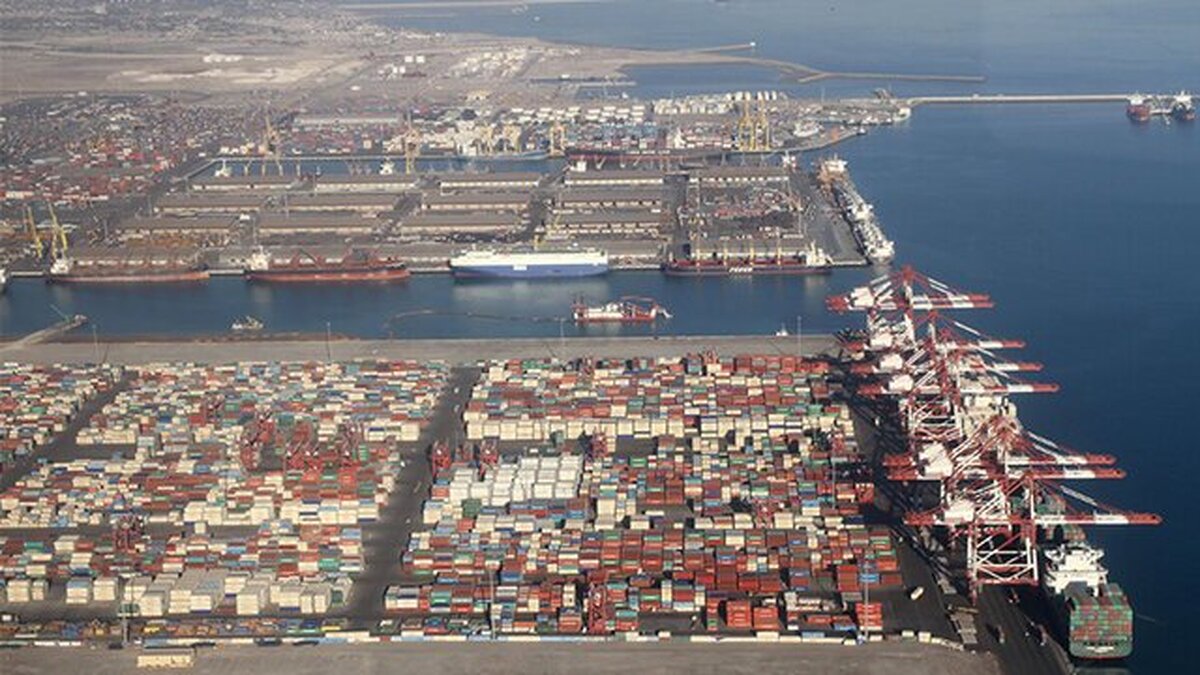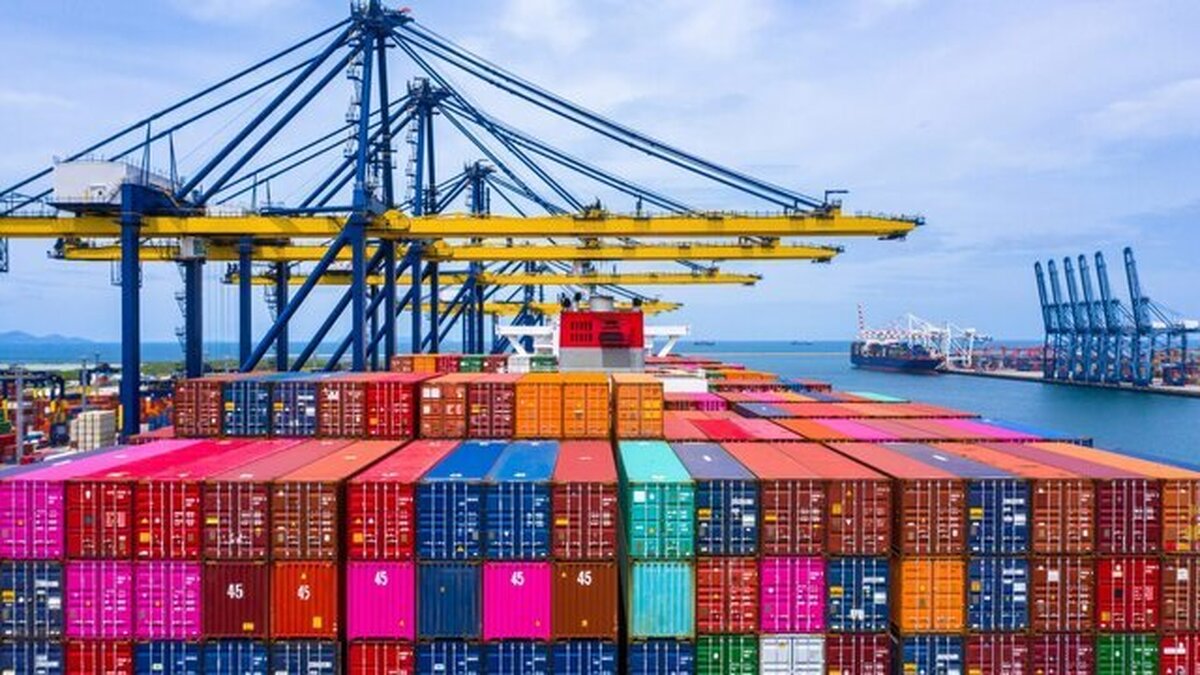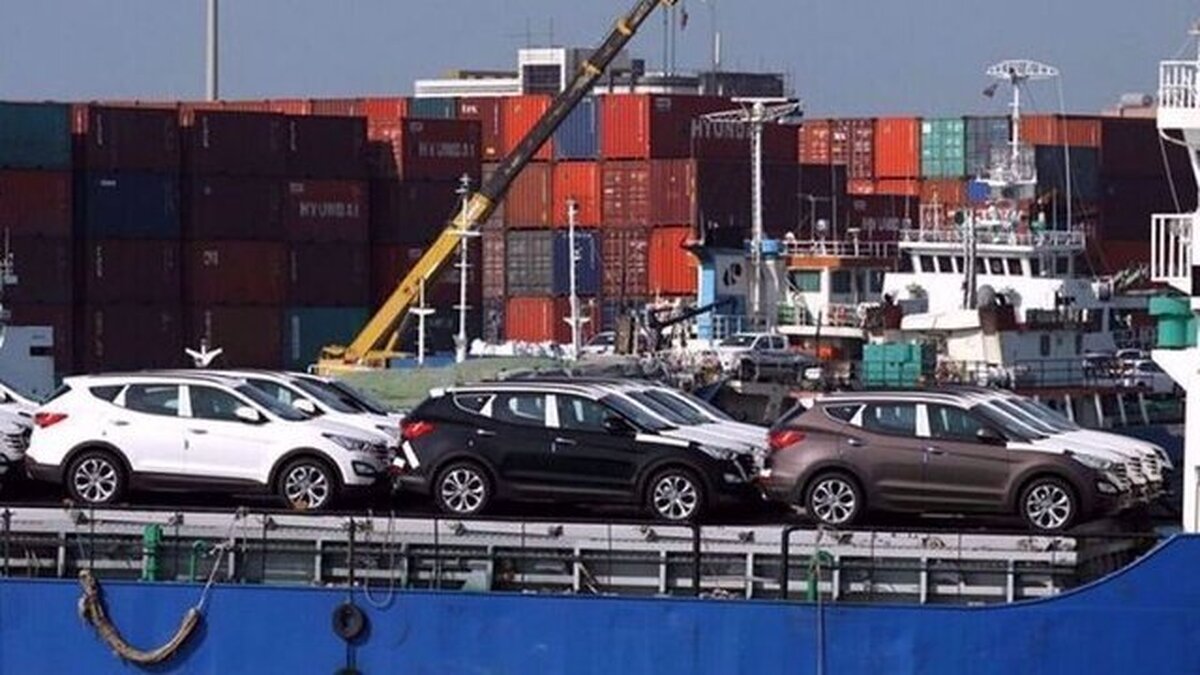
Essential Goods Update by IRICA
EghtesadOnline: A total of 10 million tons of essential goods worth $5.5 billion were cleared from Iranian customs terminals in the first five months of the current fiscal year (March 21-Aug. 22), registering a 17% and 68% growth in weight and value respectively year-on-year.
The announcement was made by Mehrdad Jamal Orounaqi, the technical deputy of the Islamic Republic of Iran Customs Administration, was quoted as saying by Mehr News Agency.
According to IRICA, 6.1 million tons of essential goods are stored in ports of entry, or held on board vessels awaiting unloading there as of Sept. 6, ISNA reported.
More specifically, about 4.3 million tons are stored in customs terminals and 1.8 million tons are loaded on vessels.
The total figure stood at 6.4 million tons in the previous fiscal month (June 22-July 22).
It hit 5.2 million tons in the first month of the current fiscal year (March 21-April 20) and 5.8 million tons in the second month (April 21-May 21).
Out of the 4.3 million tons stored in warehouses and ports, corn accounts for the highest volume with 1.3 million tons and is followed by wheat with 150,000 tons, barley with 880,000 tons, soybeans with 836.7 tons, rice with 16,200 tons, sugar with 216.4 tons, unprocessed edible oil with 613.2 tons and oilseeds with 319.3 tons.
Also known as necessity goods, essential goods are products consumers will buy, regardless of changes in income levels.
Imam Khomeini Port in the southern province of Khuzestan Province is the main hub of essential imports. The port boasts 40 wharfs, 140 kilometers of railroads within its premises and the latest loading and unloading facilities.
Most of Iran’s demand for livestock feed raw material as well as grains are imported through this southern port.
According to the director general of Khuzestan Ports and Maritime Organization, loading and unloading of non-oil and oil-based products at Imam Khomeini Port in the first five months of the current fiscal year (March 21-Aug. 22) increased by 20% year-on-year.
“Imam Khomeini Port Special Economic Zone, with its advanced equipment and an annual capacity of 50 million tons, plays an important role in the supply chain and food security of the country,” Adel Daris was also quoted as saying by ISNA.
A total of 18.46 million tons of non-oil and oil-based products and goods were loaded and unloaded in the port during the period, of which 11.29 million tons belonged to non-oil goods and the rest (7,000 tons) to oil-based products.
More than 6.88 million tons of essential good were unloaded at Imam Khomeini Port in the five-month period, registering a 17% growth YOY.
Shahid Rajaee, Amirabad and Noshahr are other major ports of entry for essential goods.
The Central Bank of Iran has provided $7.2 billion at a subsidized rate of 42,000 rials per dollar for the import of essential goods and pharmaceuticals in the first five months of the current Iranian year (March 21-Aug. 22), twice as much as the corresponding period of last year.
Latest statistics by CBI show it supplied $580 million to import barley; $939 million to oilseeds; $1,408 million to corn; $1,257 million to unprocessed or vegetable oil; $571 to soymeal; $564 million to wheat; and $322 million to import essential items categorized as “others” by the Ministry of Industries, Mining and Trade and the Agriculture Ministry.
Furthermore, $1,611 million were supplied to Health Ministry for importing pharmaceuticals and medical equipment during the period.
The provision of subsidized foreign currency at the rate of 42,000 rials per US dollar for importing essential goods and pharmaceuticals stood at $7,252 million in the five-month period.
Fiscal 2020-21 in Review
A total of 23 million tons of essential goods worth $12 billion were imported during the last Iranian year (March 2020-21), according to the spokesperson of the Islamic Republic of Iran Customs Administration.
“The lion’s share of this sum amounting to 13.44 million tons worth $3.74 billion pertained to livestock and poultry feed. This volume accounted for 58% and 31% of the weight and value of last year’s total essential goods’ imports respectively,” Rouhollah Latifi was also quoted as saying by IRNA.
The spokesman said corn stood at 9.78 million tons worth $2.5 billion, soymeal at 1.82 million tons worth $793.94 million and barley at 1.83 million tons worth $457.32 million.
“About 2.34 million tons of oilseeds worth $1.25 billion, in addition to 1.14 million tons of refined edible, semi-solid, liquid and unprocessed oils worth $1.06 billion, were imported during the period under review,” he added.
Imports also included around 14,798 tons of human medicine as well as medical equipment worth $1.64 billion and a total of 451,000 tons of livestock and poultry medicines worth $64.16 million.
“Our foodstuff imports also included 936,809 tons of rice worth $868.53 million, 3.02 million tons of wheat worth nearly $841.23 million, 1.01 million tons of unrefined sugar worth $370.66 million, 64,822 tons of dried tea leaves worth $329.12 million, 175,260 tons of different kinds of pulses worth $144.04 million, 30,487 tons of frozen or cold heavy livestock meat worth $133.27 million, 9,801 tons of butter worth $51.46 million and 4,422 tons of warm light livestock meat worth $29.17 million,” he said.
“Imports of essential goods for industrial purposes and production mainly consisted of 51,415 tons of industrial machinery worth $510.8 million, 207,583 tons of different types of paper worth $190.1 million, 231,064 tons of paper pulp worth $181.06 million, 252,204 tons of fertilizers worth $153.08 million, 9,074 tons of pesticides and insecticides worth $86.27 million and 6,019 seeds of different kinds of plants worth $83.63 million.
The IRICA spokesman concluded that a total of 76,716 tons of heavy vehicle tires worth $282.84 million were imported over the period under review.
According to IRICA chief, Iran imported 3.5 million tons of essential goods worth $9.7 billion from China, 5 million tons worth $9.6 billion from the UAE, $4.3 billion from Turkey, 2.2 million tons worth $2.1 billion from India and 1.2 million tons worth $1.8 billion from Germany in the year to March 20, 2021.




